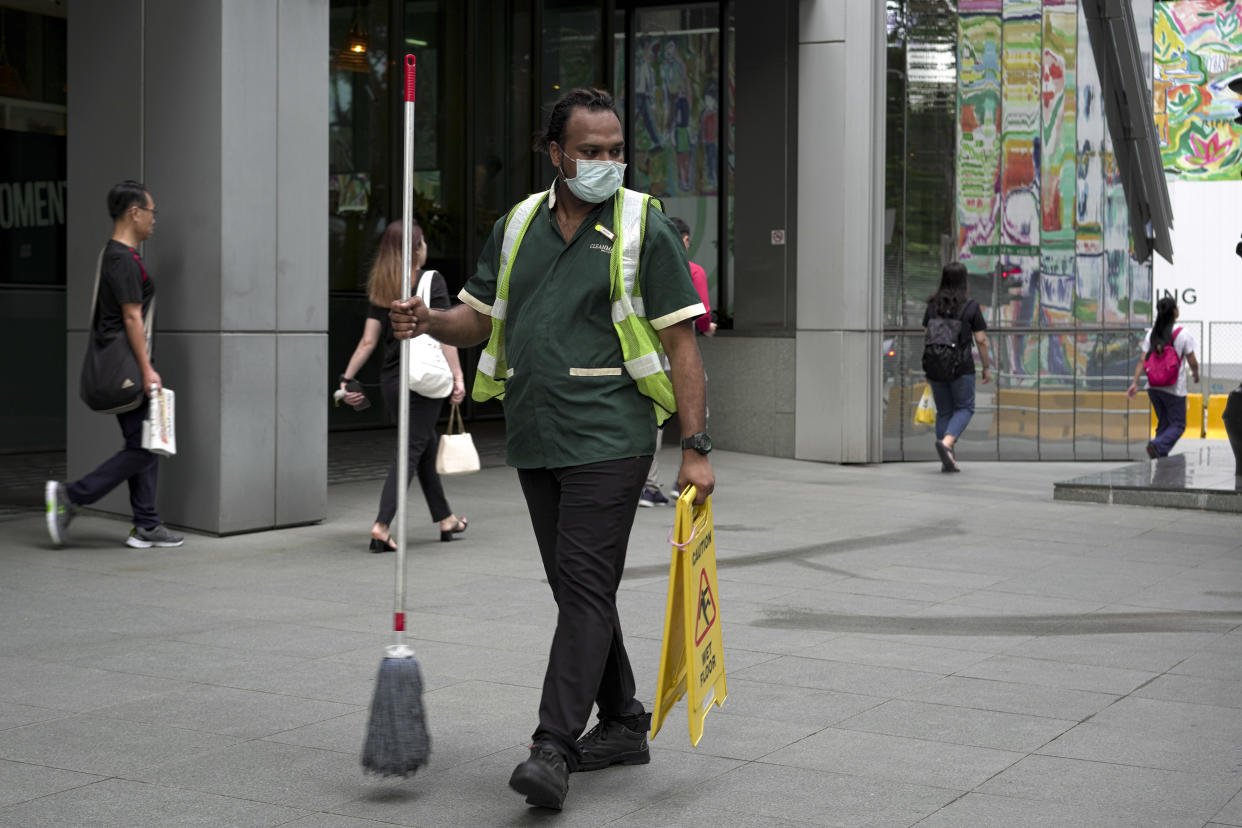COVID-19: Pay cleaning providers appropriately, urge government and trade bodies

SINGAPORE — The Singapore government, as well as its trade bodies, have urged companies to pay their cleaning service providers and workers appropriately, even as such work is being reprioritised during the COVID-19 pandemic period.
Service providers, on the other hand, should take the opportunity to send cleaners, particularly those with decreased workloads, for training and upskilling.
These are among recommendations listed in a tripartite advisory released on Friday (17 April) by the National Environment Agency, Ministry of Manpower, National Trades Union Congress, Singapore National Employers Federation, Environmental Management Association of Singapore and the Tripartite Cluster of Cleaners.
“The COVID-19 pandemic has resulted in significant disruptions to the demand and supply of cleaning services by service buyers and providers respectively, as well as the livelihoods of cleaners,” the authorities said in the advisory.
“Adjustments would have to be made by all stakeholders through close cooperation to ensure the sustainability of the cleaning sector, with the support of the Government.”
Increase wages for cleaners with higher workloads
The tripartite partners urged service providers to consider either increasing the wages or providing allowances for cleaners who are saddled with higher workloads, due to increased frequency and intensity of cleaning. This is also in recognition that cleaners face additional exposure in cleaning and disinfecting potentially contaminated premises.
On the other hand, for cleaners with reduced workloads – due to decreased footfalls or service required arising from circuit-breaker measures – service providers should comply with advisories related to salary and leave arrangements. These include taking government support into consideration to retain and continue to pay their employees during periods of reduced business activity.
Service providers can also take the opportunity to upskill their workers. They can tap on government support such as the Workfare Training Support and Enhanced Training Support for SMEs, to help defray training costs as well as receive absentee payroll funding.
They should also continue to ensure workplace safety and health of cleaners, such as the provision of suitable personal protective equipment, and emplacement on relevant training courses.
Reprioritise, reallocate cleaning needs
For service buyers – especially for premises with increased cleaning intensity without increased fee payments – the authorities urge them to reprioritise and reallocate cleaning needs.
“Cleaning should be focused on higher priority areas, such as locations with higher footfall, while reducing cleaning intensity and/or frequency at lower priority areas, without being constrained by existing headcount-based or outcome-based contracts,” they said in the advisory.
“This redistribution can help to manage service providers’ and cleaners’ workloads and maintain it at levels consistent with their normal scope of duties.”
The authorities also urged service buyers to pay the cleaning service providers appropriately as per contract terms, if there is no change in cleaning services required.
On the other hand, significant nett increases in cleaning services, such as deep cleaning of premises due to confirmed or potential COVID-19 cases, should be accompanied by increased payments.
It is recommended that some baseline level of cleaning is maintained for health and sanitation reasons, and payments to service providers can be mutually agreed considering the revised baseline level of cleaning.
Exercise restraint in activating penalty clauses
Service buyers should also be understanding towards service providers during this COVID-19 pandemic by exercising restraint in activating liquidated damages contract clauses to penalise service providers for breaches in contract clauses that are beyond their control.
They should not ask for reduced contract fees on the basis that their service providers are receiving wage support through the enhanced Jobs Support Scheme, which is intended to help enterprises retain their local employees during this period of economic uncertainty.
“The COVID-19 pandemic is a difficult period for both service buyers and providers, as well as cleaners. All stakeholders should share the responsibilities arising from changes in cleaning services required,” the tripartite partners said in the media release.
“Cleaners should be appropriately recognised and remunerated for any increased workload and risks they shoulder. This will ensure the sustainability of cleaning business operations and the cleanliness of our premises during this COVID-19 pandemic.”
Stay in the know on-the-go: Join Yahoo Singapore's Telegram channel at http://t.me/YahooSingapore
More Singapore stories:
COVID-19: Singapore preliminarily confirms 623 more cases, total crosses 5,000
COVID-19: 12 reports of abuse so far of enforcement officers, ambassadors – police
COVID-19: Kranji Lodge 1 becomes 13th dorm to be declared isolation area
COVID-19: NGOs delivering meals, essential items to foreign workers at dormitories
COVID-19: 95-year-old man is Singapore's 11th coronavirus-related fatality



